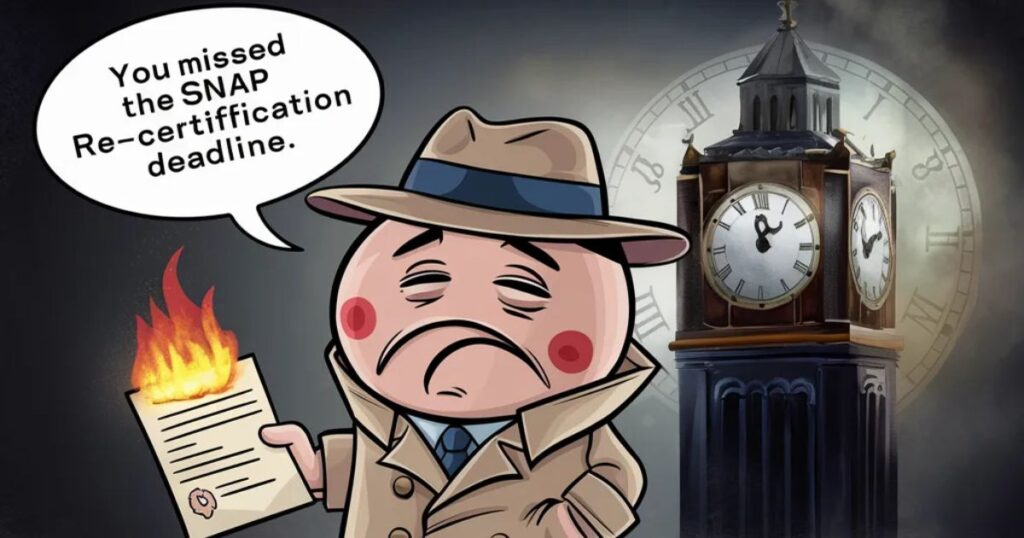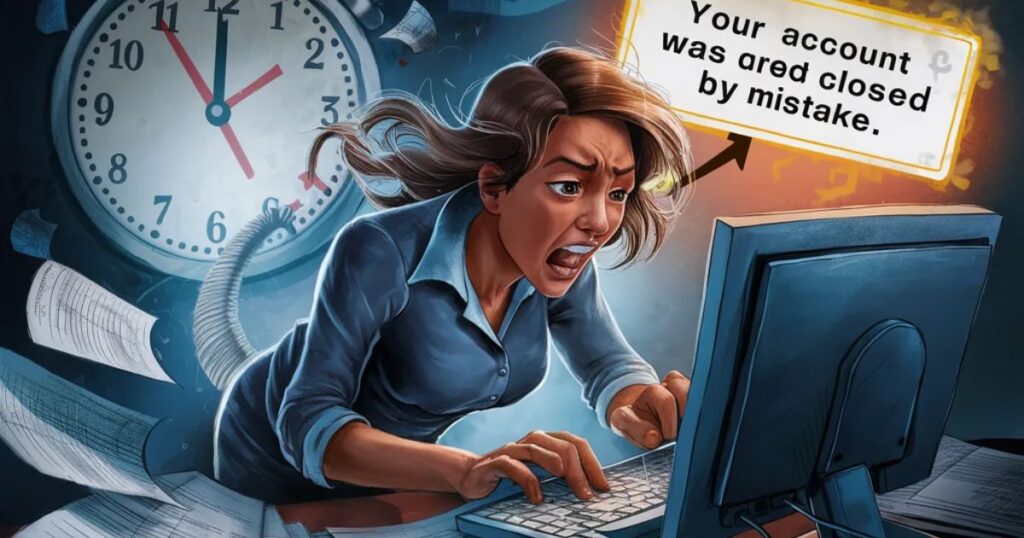Have you ever gone to check your EBT card balance, eagerly anticipating your monthly SNAP benefits deposit, only to find an empty account staring back at you?
For the millions of Americans who rely on food stamps to put meals on the table, that sinking feeling of a missed deposit schedule can be extremely stressful and concerning.
While it’s undoubtedly a frustrating situation, there’s usually a reasonable explanation for why your EBT card didn’t refill as expected.
From schedule changes to missed deadlines, let’s explore the top 7 common reasons this can happen and what you can do to resolve each one.
1. Your Deposit Schedule Changed
In most states, SNAP benefits recipients get their EBT deposits loaded onto their cards on the same day every month. However, that consistent deposit schedule can occasionally shift due to holidays or weekends.
For instance, if your normal EBT deposit date is set for the 5th of the month but that date falls on a Sunday, your payment will likely get pushed to the following business day instead. The same goes for federal holidays when government offices are closed.
Now, your specific deposit schedule might be determined by factors like your social security number, last name, birth date, or something else entirely. But the key thing to know is that deposit dates can fluctuate from month-to-month depending on the calendar.
In April 2024, John’s usual SNAP benefits got delayed because his regular 5th of the month EBT deposit date landed on Easter Sunday. After a brief panic, he realized his food stamp payment would likely arrive on the next business day (Monday the 6th) instead.
2. You Missed the SNAP Re-certification Deadline

To keep receiving SNAP benefits, you have to get re-approved periodically by recertifying your eligibility. This process, known as SNAP re-certification, typically happens every 6 to 12 months, though it can vary by state.
If you miss this hugely important re-certification deadline, your EBT account will stop refilling with food stamp benefits until you complete the renewal process once again.
“Pay close attention to any recertification notices you receive from your state’s SNAP agency. These will spell out the documents and information you need to re-submit by a certain date. Mark those deadlines on your calendar and get all the paperwork in early to avoid a lapse in benefits.”
– Jennifer Brooks, Social Services Coordinator in Nevada
To sum it up, failing to recertify in a timely manner is one of the primary reasons why EBT cards don’t get reloaded each month as expected. It’s an essential periodic requirement for all SNAP recipients to maintain active benefits.
3. You Haven’t Used Your EBT Card in a While
While it may seem counterintuitive, letting your EBT card balance climb extremely high without using it can actually cause your state to pause future deposits. This policy is meant to prevent potential abuse or misuse of SNAP benefits.
Most states set a limit on the maximum balance you’re allowed to accrue on your EBT account. If you haven’t made any purchases for several months and your balance exceeds that threshold, they may put a hold on adding additional funds until you spend some of it down.
The reasoning? SNAP EBT is a supplemental nutrition program meant to provide short-term food assistance as needed. Continuously rollover massive balances month-after-month raises red flags about whether you still require the full benefit amount.
Example: Let’s say your state has a $2,000 cap on EBT balances. If you haven’t used your card at all over the past 6 months and your balance is now up to $2,200, they may deny your next deposit until you get that balance back down below the $2,000 limit.
Recommended Post: 7 Ways to Visualize How Big a Half Acre of Land Is
4. Your Account Was Closed Due to a Violation
Like any government assistance program, SNAP has rules and regulations attached that recipients must follow. If you knowingly violate those rules through fraud or providing false information, your EBT account could get permanently closed as a penalty.
Common violations that may lead to account termination include:
- Lying about your household’s income, expenses, or family size to receive higher benefits
- Attempting to use someone else’s SNAP benefits or letting others use yours
- Buying non-food items or paying for services with your EBT card
- Breaking ABAWD work requirements if you’re an able-bodied adult without dependents
If your case gets closed for such a deliberate program violation, your EBT card simply won’t refill going forward since your benefits were cut off. You’ll need to appeal the decision and go through the full SNAP approval process again from scratch.
5. There’s an Unusually High EBT Card Balance
Building off the previous reason, carrying an unusually high balance on your EBT card for an extended period can also trigger a hold on future deposits, even if you didn’t actually break any official rules.
Most states set a limit, typically between $1,500 and $3,000, for the maximum SNAP benefits balance you’re allowed to have at any given time. If your balance exceeds that limit due to under-usage over several months, they may pause reloading more funds until you spend some of that money down first.
For example, let’s say your state’s EBT account balance cap is set at $2,500. If you haven’t made any purchases for 5 months and your card balance is now up around $3,000, that may cause your next monthly deposit to get held temporarily.
In this scenario, the best thing to do is contact your local SNAP agency promptly. As long as you can provide a reasonable explanation for the excessive balance and start using those benefits again, they can likely reactivate your monthly EBT deposits right away.
6. Your Account Was Closed by Mistake

While extremely rare, there are instances where an EBT account gets wrongfully suspended or terminated due to a clerical error, system glitch, lost paperwork, or some other unfortunate mistake by program administrators.
Maybe your recent re-certification documents got lost in the shuffle. Or perhaps there was a data entry mistake that flagged your account by mistake. Whatever the reason, showing up to an empty EBT card when you were expecting a deposit is understandably upsetting.
If you’re confident you’ve fulfilled all requirements on your end and suspect a mistake was made, don’t hesitate to get on the phone with your local SNAP office or Department of Health and Human Services office to dispute it.
Come prepared with all your documentation, be persistent yet polite, and insist on a thorough investigation into what caused the error. While it may take some time and effort, you can get the mistake recognized and your food stamp benefits reinstated.
7. You Recently Reported Income/Household Changes
Finally, any major changes to your household’s income, living situation, expenses, or family size can temporarily impact your SNAP calculation for that specific month. This can result in your EBT deposit amount getting adjusted accordingly or even delayed while those changes are processed.
For example, if you recently:
- Started a new job with higher earnings
- Moved to a new residence with different housing costs
- Had another child or added a new household member
- Incurred substantial medical bills or other deductible expenses
Any of those scenarios can legitimately increase or decrease your SNAP allotment on a month-to-month basis based on your updated financial picture. So it’s normal for your EBT deposit date, amount, or both to shift accordingly until it gets re-calculated.
The key here is to always promptly report any major life changes or updates that could impact your food stamp eligibility, per program rules. Getting those revisions processed quickly will minimize disruptions to your regular benefit cycle.
What to Do If Your EBT Card Didn’t Refill This Month

So you’ve waited a few days past your typical deposit schedule, but your SNAP benefits still haven’t hit your EBT account. What’s the best way to handle this situation and get your payment processed?
Check for Notifications
First, thoroughly check any emails, letters, or notices from your state’s SNAP agency about potential changes to your case. There may be clear communication explaining the reason for a delayed deposit, like an altered schedule due to a holiday or an upcoming recertification deadline. Don’t overlook these important updates.
Contact Your Caseworker
If you can’t find any obvious explanation from the SNAP office, it’s time to escalate the situation. Call up your caseworker or your local SNAP/Department of Health and Human Services office directly.
Explain calmly that your EBT card didn’t refill on the scheduled date this month and you need assistance understanding why and resolving the issue. Have any relevant documentation like case numbers and dates handy.
Be Prepared to Renew Eligibility
On the call, be prepared to re-submit any paperwork needed to renew your SNAP eligibility if you’re coming up on a recertification period. Getting this process completed will clear the way for your benefits to resume.
Explain High Balances
If your EBT card balance has become excessively high from underusage, have a legitimate explanation ready for why that occurred. As long as you take steps to spend some of it down, they can likely reactivate your monthly deposits moving forward.
Follow Up Persistently
Unfortunately, resolving a missed EBT payment doesn’t always happen with just one phone call. You may need to persistently follow up with the SNAP agency over a period of days or weeks to get it fully straightened out. Document all interactions and paperwork submissions closely.
Appeal if Needed
If you’ve made a earnest, well-documented effort but your issue still isn’t resolved satisfactorily, you do have the right to file an official appeal about the disruption in your benefits. Consult your state’s fair hearing process for disputes.
The key things to remember are:
- Don’t ignore the situation hoping it resolves itself
- Be proactive in seeking answers from officials
- Provide all requested documentation thoroughly and on time
- Persistently follow up until accountability is taken
- You have rights, so escalate through proper channels if absolutely needed
While missing an expected EBT deposit can undoubtedly put a strain on your household’s access to food, remember that you have rights as a SNAP recipient. By being proactive, patient, and politely persistent, you can get to the bottom of why your benefits weren’t provided and get that EBT card refilling again soon.
Don’t let a single missed SNAP payment spiral into ongoing food insecurity. Following the proper communication channels, you can get the situation investigated and resolved so you dapat access the nutrition assistance you’re entitled to.
Key Takeaways
- There are 7 main reasons why an EBT card may not refill on schedule: schedule changes, missed recertifications, high balances, violations, account closures, system errors, and reported income changes.
- First, check all official communications for explanations before escalating the issue.
- Contact your caseworker promptly, provide documentation, and be prepared to renew eligibility if needed.
- Maintain persistent yet polite follow-up until accountability is taken and your benefits are reinstated.
- Know your rights as a SNAP recipient – you can appeal through official channels if the situation isn’t resolved properly.
With some patience and diligent efforts, that missed EBT deposit will simply be a temporary bump in the road on your path to steady food access and security. By understanding the common reasons for delays, you’ll be empowered to get your SNAP benefits situation resolved efficiently.
![Why Didn’t My EBT Card Refill? [7 Reasons] (2024)](https://backpackaboutinfo.com/wp-content/uploads/2024/06/why-didnt-my-ebt-card-refill-7-reasons-2024.jpg)










